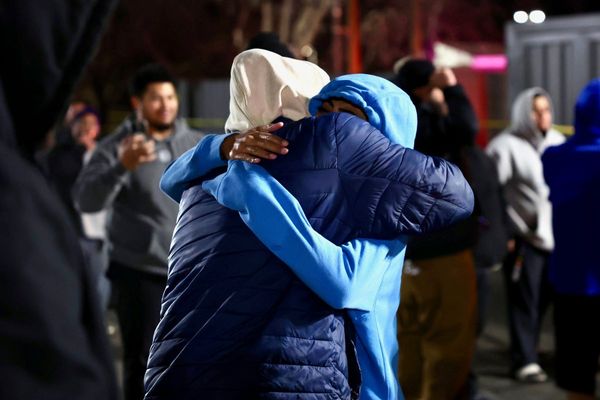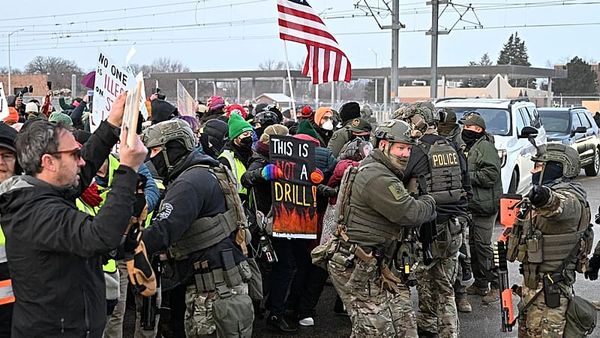
For many women of color, the right to control one’s reproductive destiny has always been about much more than the right to abortion.
With the recent loss of the constitutional right to abortion in the US, some reproductive rights advocates are calling for a renewed focus on reproductive justice, a concept developed in the early 1990s by women of color. Reproductive justice stresses not just the right to abortion, but also economic, racial and environmental justice, along with other facets of social equality, as critical to true reproductive freedom.
Dorothy Roberts is an internationally renowned scholar of race, gender, and the law at the University of Pennsylvania, who has dedicated her career to exposing attacks on Black women’s reproductive rights dating back to slavery and persisting to the present. She argues that the supreme court’s decision to overturn Roe v Wade validates what reproductive justice advocates have been arguing for years: that the mainstream reproductive rights agenda has been blind to how the state has overpoliced Black women’s reproductive lives.
Below, she discusses why the reproductive rights movement needs to bring reproductive justice out of the margins and into the center.
You’ve written about the reproductive justice movement, and your book Killing the Black Body is an important contribution to this cause. For those who are unfamiliar, could you explain your work and the movement?
In the late 1980s and early 1990s, I began looking into the prosecutions of Black women who were pregnant and taking drugs.
These prosecutions were racist and sexist in my opinion, and they were part of a long history of policing and penalizing Black women’s reproductive choices, bodies and lives.
This work on fighting the criminalization of Black moms and pregnant women during the so-called crack epidemic in the US prompted me to explore the numerous policies that were founded on vilifying stereotypes about Black mothers and blaming Black women’s childbearing for a range of social ills, and then adopting punitive and villainizing actions.
That’s what inspired me to write Killing the Black Body.
In 1994, while I was writing Killing the Black Body, a group of Black women met at a pro-choice conference and coined the phrase “reproductive justice” to describe a holistic approach that puts Black women at the center and incorporates our experiences of having our childbearing decisions punished and devalued. While the mainstream reproductive rights movement focused on abortion, we expanded the definition of reproductive freedom to include not only abortion but also [freedom from] state interference. Reproductive justice includes the right to abort a pregnancy and also to raise a child in a safe and supportive community.
The mainstream pro-choice reproductive rights movement, which is led primarily by white women, is associated with organizations such as Planned Parenthood, Naral Pro-Choice America, and the National Organization for Women. This movement has largely focused on the legal right to abortion, and reproductive justice has expanded on that. Because of this strategy, what kinds of things has the movement failed to notice or pay attention to?
It overlooked the experiences of Black, brown and Indigenous women who have been sterilized, abused, or punished for bearing children. It overlooked welfare laws based on misleading impressions of so-called welfare queens, Black women who allegedly had babies to collect welfare checks but wasted the money. These stereotypes have led to welfare policies that discourage welfare recipients from having more children by reducing their benefits.
Black women’s resistance and fight for reproductive rights and health policies pushed me and other Black feminists in the US to challenge the white-dominated reproductive rights movement’s “choice” framework. This framework privileges the most socially advantaged people in society who have the wherewithal to make choices. It doesn’t take into account social structures, power arrangements of race, class, gender, heterosexism, immigration status, religion – all of which shape one’s ability to have reproductive autonomy.
Together with other activists of color, we reframed how we should approach reproductive freedom, away from choice and toward social justice.
This approach looks at the circumstances in which people give birth. High Black maternal mortality is a matter of reproductive justice. States that have passed or will soon pass abortion bans have the worst healthcare systems, the highest maternal mortality, especially Black maternal mortality, and the highest infant mortality. As a result of [the supreme court decision] Dobbs, we’ll see increases in maternal mortality – deaths of pregnant people who intended to carry to term – because their health will be compromised.
It includes ending police violence, abolishing prisons, and all the inhumane carceral approaches to meeting human needs that have a profound impact on one’s reproductive life. Prisons are a major impediment in the United States to reproductive freedom. People who have had their children taken away by a discriminatory child welfare system that targets Black neighborhoods for family separation do not have reproductive freedom. To me, reproductive justice is inextricably linked to the fight against the prison industrial complex and the family policing system.
Abortion is important, but not the only focus. But having said that, we also have to understand that bans on abortion are connected to all these other aspects of reproductive freedom. Reproductive justice activists have been pointing out these connections for decades. I believe the mainstream reproductive rights movement saw them late in the game, but they are painfully clear now.
What should the movement do to survive? What concrete strategies would you recommend?
Dozens of organizations around the country are focusing more on state and local legislation and courts to support reproductive justice.
Some of the strategies we could employ include passing legislation that guarantees reproductive freedom and filing cases in state courts. Supporting or organizing efforts and organizations that try to help people seeking abortion, such as abortion funds and organizations that provide information to people seeking care, is just as important. Continuing to protest the aftermath of Dobbs and state legislators’ efforts to restrict access to abortion care.
All of these are efforts that we can make, in addition to learning about and participating in reproductive justice organizing in general.
Who should own the movement now?
On one hand, women of color organizing and the reproductive justice framework are more effective than the reproductive choice approach mainstream organizations use. On the other hand, I think we need collective efforts across multiple organizations and struggles. It’s clear that the movement for reproductive justice must be aligned with movements for housing, abolishing the prison industrial complex, environmental justice, and economic justice, because all of those movements are essential to supporting freedom, including reproductive freedom.
Movements seeking to limit or abolish the power of the criminal legal system and the prison industrial complex are relevant to opposing Dobbs’ assault on reproductive freedom. People are already being arrested and imprisoned for stillbirths and miscarriages; that standard will be applied to abortions as well. Recognizing the interconnected nature of these challenges is essential.
We should welcome reproductive justice activists’ leadership as we build a more collective movement.







